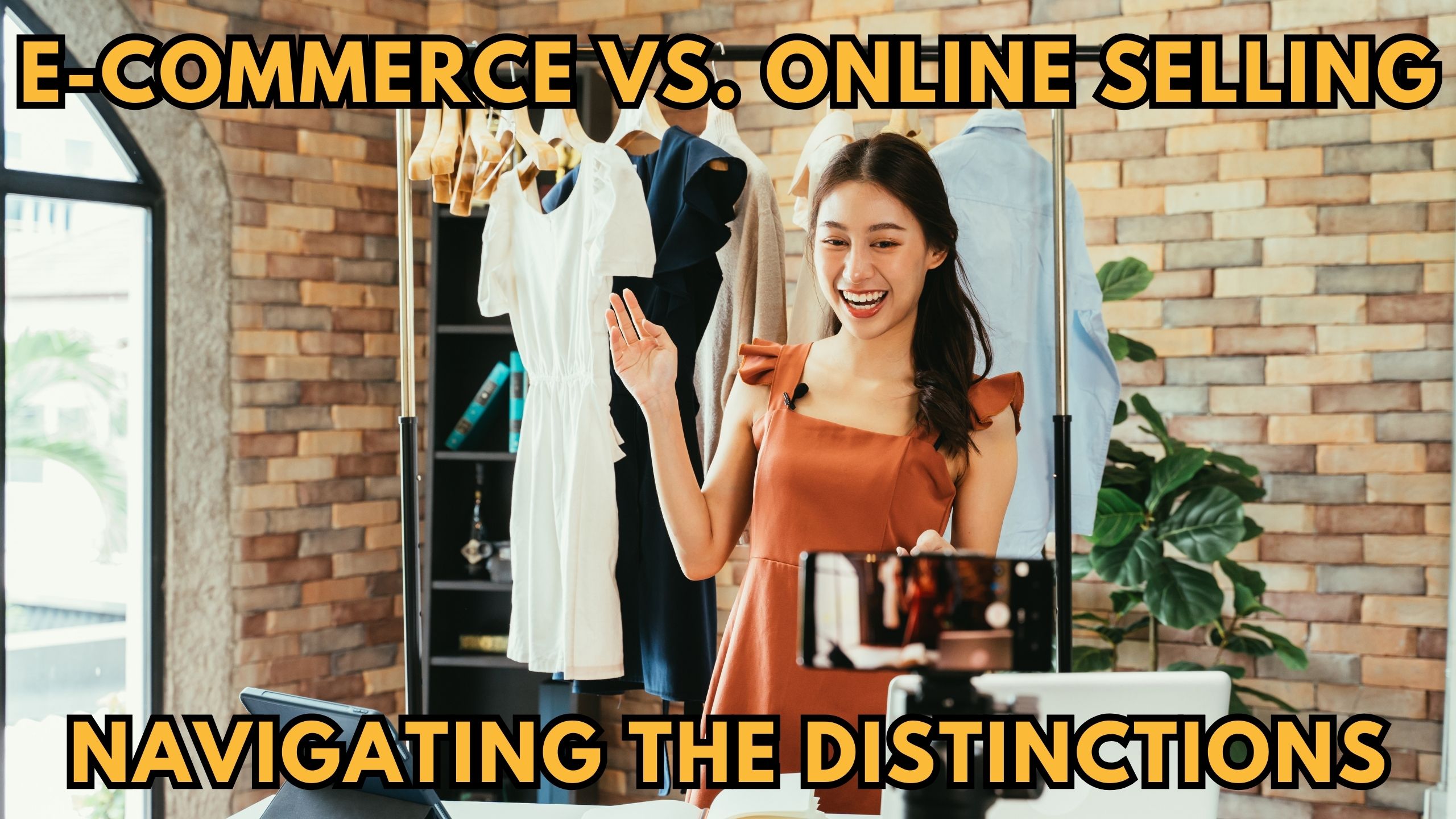E-commerce vs. Online Selling: Navigating the Distinctions


E-commerce vs. Online Selling: Navigating the Distinctions
In the ever-evolving landscape of digital commerce, the terms “e-commerce” and “online selling” are often used interchangeably, leading to confusion. This blog aims to dissect the subtle yet crucial distinctions between these concepts, offering clarity for businesses and entrepreneurs. As we delve into the nuances, we’ll also explore five essential SaaS products that play pivotal roles in both e-commerce and online selling strategies.
1. Unveiling the Essence of E-commerce
E-commerce encompasses a broader spectrum of online business activities, including but not limited to online selling. It involves the entire online transaction process, from browsing products and making purchases to payment processing and order fulfillment. Shopify, a leading e-commerce platform, empowers businesses to create robust online stores, manage inventory, and streamline the entire e-commerce workflow.
2. Precision in Online Selling with Amazon
Online selling, on the other hand, zeroes in on the act of selling products or services on online platforms. Amazon, a global e-commerce giant, epitomizes online selling. Sellers leverage Amazon’s extensive reach, tapping into a vast customer base. The platform provides tools for order management, payment processing, and logistics, making online selling accessible and efficient.
3. Simplifying Transactions with PayPal
For businesses engaged in both e-commerce and online selling, PayPal serves as a linchpin for secure online transactions. It facilitates payment processing, mitigates risks, and instills confidence in both buyers and sellers. With its widespread acceptance, PayPal enhances the credibility of businesses engaged in digital commerce.
4. Customer Engagement through Mailchimp
In the realm of e-commerce, customer engagement is paramount. Mailchimp, renowned for email marketing, plays a crucial role in nurturing customer relationships. Whether for e-commerce stores or online selling ventures, Mailchimp enables businesses to create targeted campaigns, foster brand loyalty, and drive repeat purchases.
5. Analytics Precision with Google Analytics
Understanding user behavior and optimizing strategies is integral to both e-commerce and online selling success. Google Analytics emerges as a vital tool for comprehensive insights. By analyzing website traffic, user interactions, and conversion metrics, businesses can refine their approaches, ensuring maximum impact in the digital marketplace.
Conclusion: Empowering Your Digital Commerce Journey
In conclusion, while e-commerce and online selling share common ground, the distinctions lie in their scopes and focuses. Understanding these nuances is crucial for businesses aiming to thrive in the digital commerce landscape. Leverage the power of SaaS tools to enhance your strategies, streamline operations, and elevate your digital commerce journey.
Revolutionize Your Digital Commerce with Subscribed.fyi
Empower your digital commerce endeavors with Subscribed.fyi, the ultimate solution for managing your SaaS stack. Sign up today to unlock exclusive deals, streamline subscription management, and access insights that catalyze your success. Navigate the complexities of SaaS tools effortlessly and make informed decisions with Subscribed.fyi.
Relevant Links:








